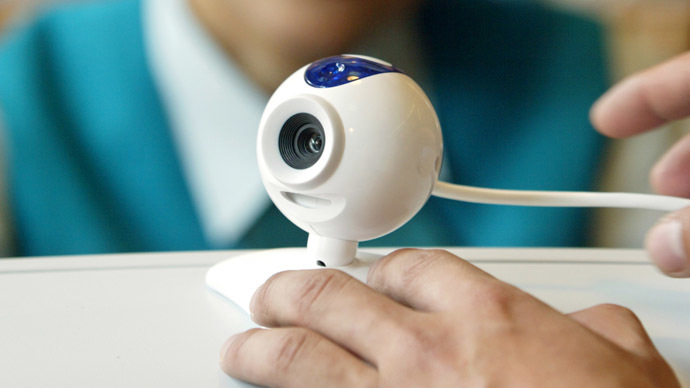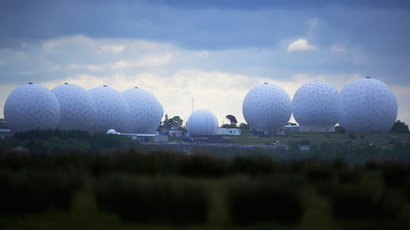US senators plan probe into NSA’s role in Yahoo webcam spying scandal

Following the revelations that Britain’s spy agency intercepts Yahoo users’ private data, three outraged American senators plan to launch an investigation into the NSA’s involvement in the GCHQ operation.
The scandal with the British GCHQ intelligence agency collecting images of Yahoo users by secretly connecting to people’s webcams has made American lawmakers curious about whether their own National Security Agency has been cooperating with British intelligence in this respect.
Senators Martin Heinrich, Mark Udall and Ron Wyden, all members of the Senate Intelligence Committee, issued a joint statement Friday, stating that they were “extremely troubled” with the “breathtaking lack of respect for privacy and civil liberties” of the UK spy agency and said that “any involvement of US agencies in the alleged activities reported today will need to be closely scrutinized.”
“A very large number of individuals – including law-abiding Americans – may have had private videos of themselves and their families intercepted and stored without any suspicion of wrongdoing,” the statement said.
The senators acknowledged that the interrelatedness of global communications had “dramatically increased the likelihood of innocent Americans being swept up in intelligence collection nominally aimed at foreigners," and called for US authorities “to ensure that ‘foreign’ intelligence collection does not intrude unnecessarily on the rights of law-abiding people or needlessly undermine the competitiveness of America’s leading industries.”
On Friday the Internet Association, representing industry giants such as Amazon, AOL, eBay, Google, Netflix and Twitter, also expressed alarm over the latest GCHQ revelations and called for reform of the intelligence agencies.
“Today’s revelations, about British intelligence practices, are alarming and reaffirm the need for greater transparency and reform of government surveillance,” the Internet Association’s CEO Michael Beckerman said in a statement.
The statement urged governments to “immediately act to reform the practices and laws regulating surveillance and collection of Internet users’ information,” and encouraged legislation “to limit governments’ authority to collect users’ information and increase transparency about government demands.”
According to documents disclosed by former intelligence contractor Edward Snowden and published by The Guardian on Thursday, the UK's GCHQ with the assistance of the NSA routinely intercepted and stored webcam images from private computers within the framework of secret Optic Nerve program started in 2008. The images and associated metadata was fed to NSA’s analytical tools such as Xkeyscore.
The documents obtained by the Guardian maintain that between 3 percent and 11 percent of the material stored by GCHQ under Optic Nerve program contain sexually explicit material.
The agency’s guidance to the program stressed that “Retrieval and or reference to such material should be avoided.”
Both NSA and GCHQ refused to give comments on the new portion of unpleasant revelations about agencies’ joint activities. The outgoing NSA director, four-star Army General Keith Alexander, simply walked away from a reporter who asked him about the NSA’s role in Optic Nerve. The GCHQ’s only comment has been that all its programs are operated in full accordance with UK law.
There are no UK laws either prohibiting a search for US citizens’ data without a warrant or legal ground to demand removal of personal data of American and British citizens from databases of intelligence agencies.
The major task of the ‘Optic Nerve’ program is identifying intelligence targets using multiple anonymous internet IDs with the help of facial recognition technology.














